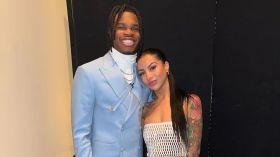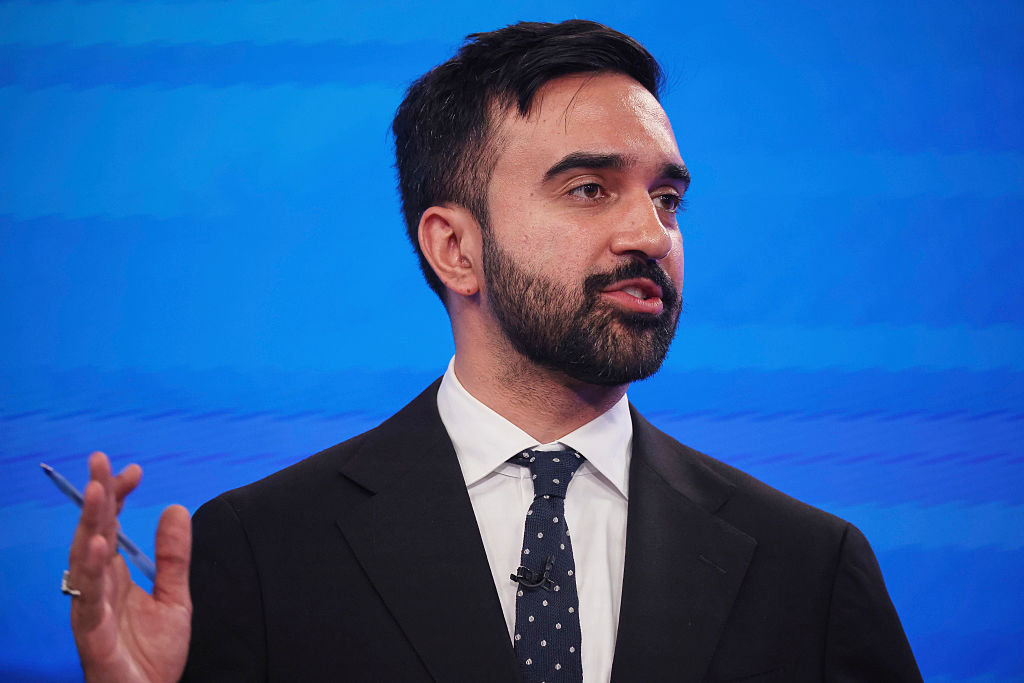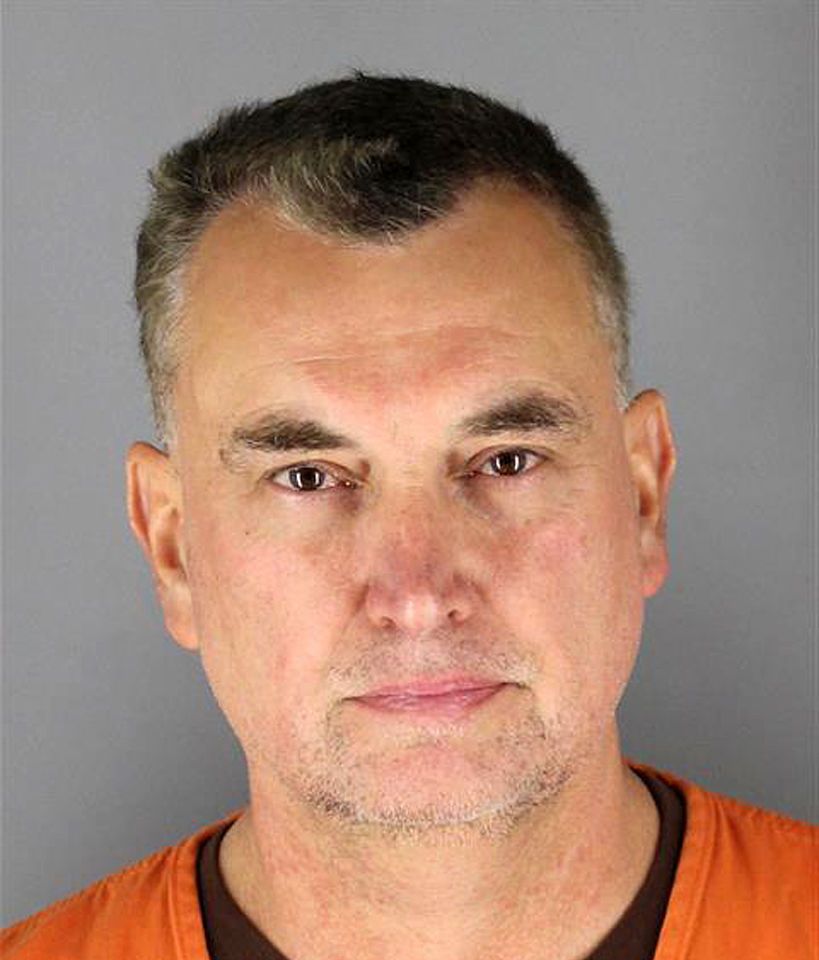HBCUs And The Gatekeeping Of Black Culture: The One Story
The One Story: HBCUs And The Gatekeeping Of Black Culture
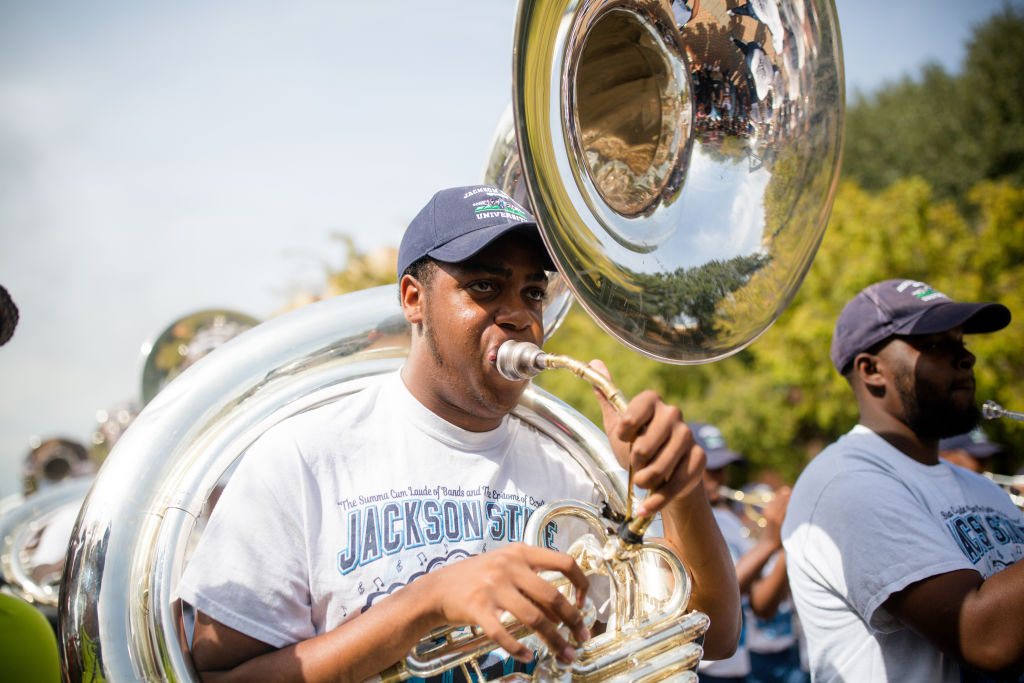
Source: Jackson State University / Getty
HBCUs are some of the most impactful forces in America.
The plentiful opportunities that they have provided the underserved and overlooked have helped create a social and economic backbone for this country and have also manufactured an ecosystem of pride, tradition, and unity that many take extremely seriously.
So what happens when people who are outsiders to this niche and powerful community try to add their impact to it? The answer may not be as straightforward as one may think.
The most recent example of this is Deion Sanders‘ brief tenure at Jackson State University (JSU). After a dominant run as head coach of the HBCU’s football team that helped bring in more corporate sponsors, increased national attention and two SWAC championships, Sanders left to take the job at the University of Colorado even when most people in the HBCU community felt like the work to uplift historically Black colleges wasn’t finished for Sanders.
His departure prompted a bigger question about the protection, expansion and progression of HBCUs and their culture in the face of decades-long challenges such as underfunding. And with this conversation comes a level of nuance that can be difficult to unpack for many, even experts on the subject matter.
“When you’re fighting in an uphill battle, sometimes you might need a push from the outside,” said Steven J. Gaither, founder of HBCU GameDay, a sports news website covering Black college athletics. “I think it’s really a case-by-case basis. As proud as we are as an HBCU community we are not big enough in and of ourselves to lift ourselves up to where we think that we should be by shunning everybody from the outside.”
There were rumblings in the HBCU community over the way Sanders’ departure was handled, prompting speculation that his time at JSU was nothing more than a stepping stone in his coaching career. This sentiment sparked mixed emotions among HBCU regarding the staples of impact and legacy building for these institutions.
“It’s hard to measure because you have to measure: Are your intentions pure for the collective?” Gaither asked rhetorically. “Or are they individual for you? And where does that line blur?”
He continued: “We have to be able to examine who really cares and who really is willing to make an investment. The biggest thing is you have to have people that are willing to make an investment. A lot of people want to tell the HBCU community what they think they should do but haven’t made an investment into it and won’t get down and do the work. I think anybody that will do the work of uplifting HBCUs, those people should be allowed in, and anybody who reveals themselves to not be willing to do the work they got to see themselves out.”
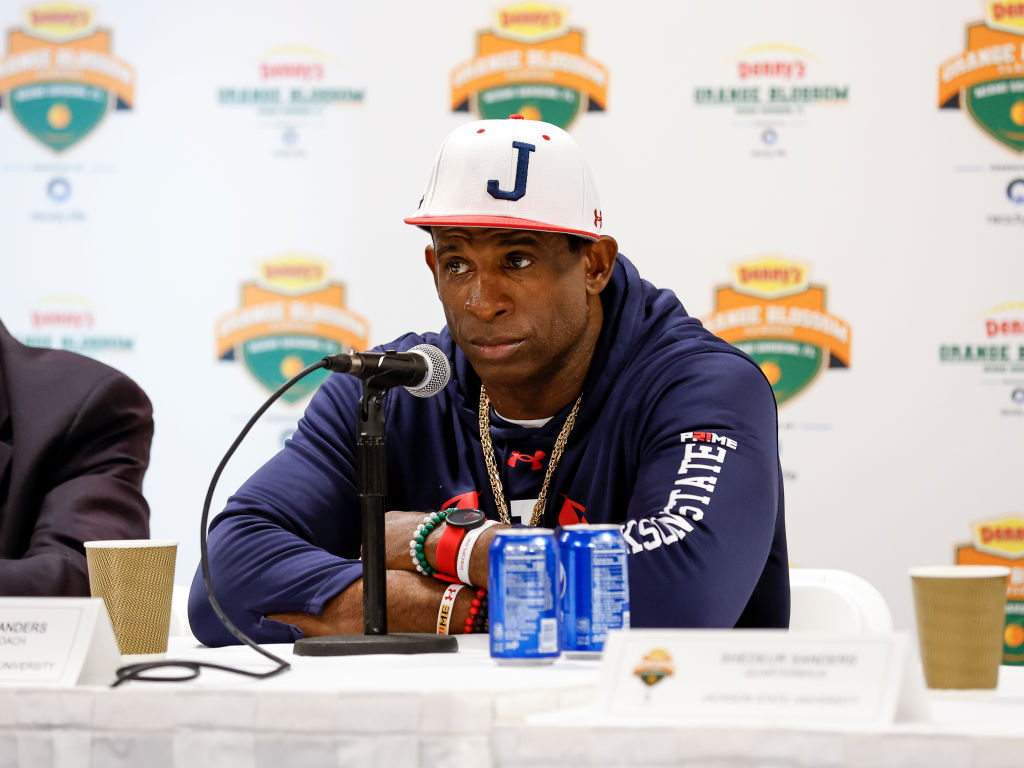
Now-former head coach Deion Sanders of the Jackson State Tigers talks with the media during the post-game press conference after the game against the Florida A&M Rattlers during the Denny’s Orange Blossom Classic Game at Hard Rock Stadium on September 4, 2022, in Miami Gardens, Florida. | Source: Don Juan Moore / Getty
Another aspect of what makes this conversation so fascinating is that there is a strategic side to all of this from HBCU institutions as well. HBCU leaders understand the amount of help needed from the outside to keep these schools not only in existence but also thriving.
And, according to Jarrett Carter, a former editor of The HBCU Digest, these strategic decisions made by an HBCU administration may conflict with the rest of the Black college community at large.
“What leaders think and what the stakeholders think are often two different things,” Carter told NewsOne in a recent conversation. “The leaders are thinking about what’s best for the school, often the stakeholders are thinking about what makes the school look the best, what makes the school feel good. A lot of times those things are congruent, sometimes they aren’t.”
Carter said important questions need to be asked.
“[HBCU leaders] have to make sure that the school is around. That is their number one goal is, is this school going to be here? Is this school going to continue to be one of the biggest employers of Black people in this city or state? Is this HBCU going to be one of the main repositories for teachers going into school systems in the state? Is this HBCU going to continue to be responsible for healthcare reform?… Nobody thinks about HBCUs in that realm, only when HBCUs do something that you don’t like.”
Carter, a graduate of Morgan State University, said he understands the emotional pull that these institutions can elicit from the HBCU community as well as the willingness to want to protect the schools from people who may be perceived as inauthentic. But HBCUs can pursue something greater than their norm, Carter said.
“This is not to besiege Black folks for feeling about our schools the way that we do, we should … It’s just a matter of can we pursue a bigger picture? And we can,” Carter insisted. “No one would get upset if somebody today said we got a chance to get Bill Gates to be the Dean of Computer Science at Morgan State. You lost your damn mind if you turn that down.”
The complexities of this conversation involve multiple socioeconomic issues that all contribute to the fact that gatekeeping HBCUs is not a simple yes or no answer.
“I’m not blind to what it takes for Morgan State to exist,” said Carter. “ And it ain’t just me and what I think.”
The HBCU community must continue to find different strategies to help uplift these institutions without diluting the very culture that makes them unique, according to Gaither. He said that will have to be an individual plight that HBCUs must undertake for themselves.
“Every school, every leader, everybody has to figure out what their mission is, get behind it and figure out how to find resources to maximize it,” Gaither said.
SEE ALSO:
Video: HBCU Student Arrested In Class ‘For Not Apologizing To A White Professor’

